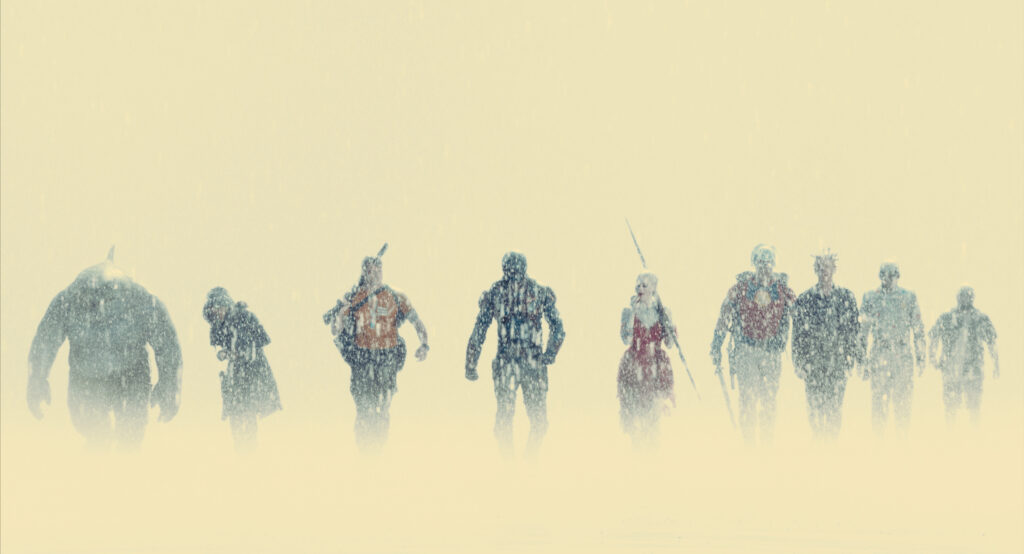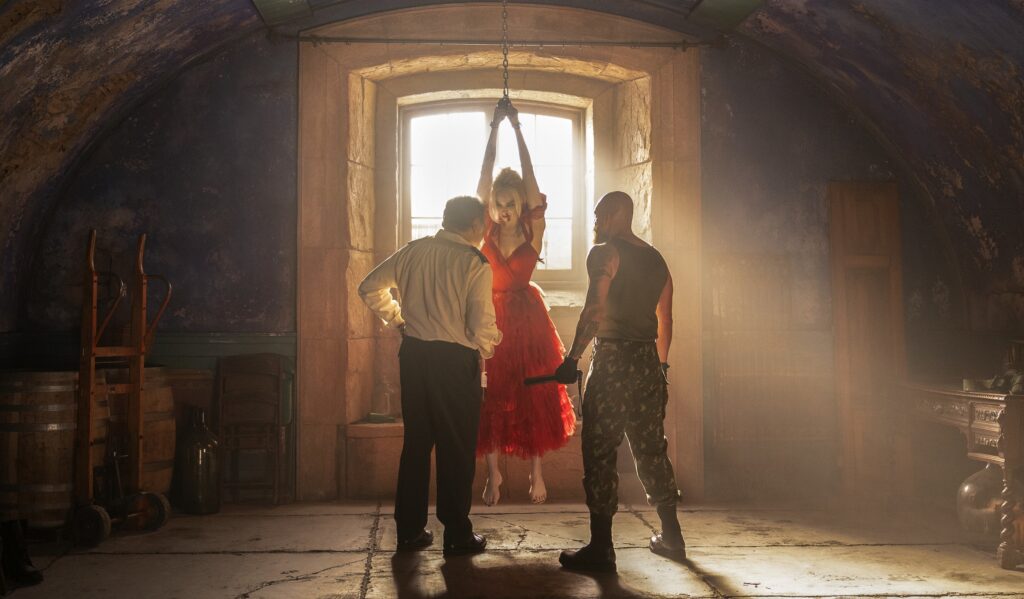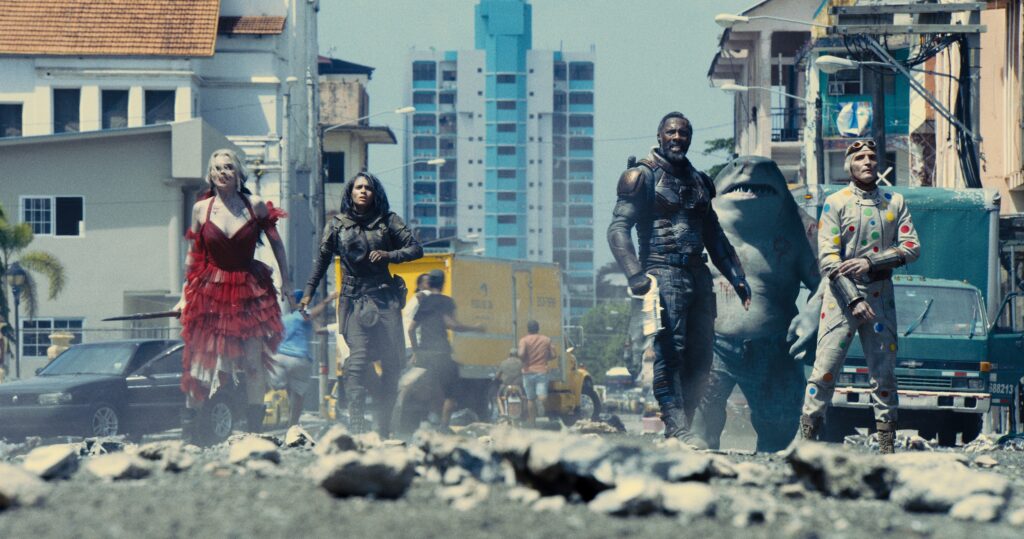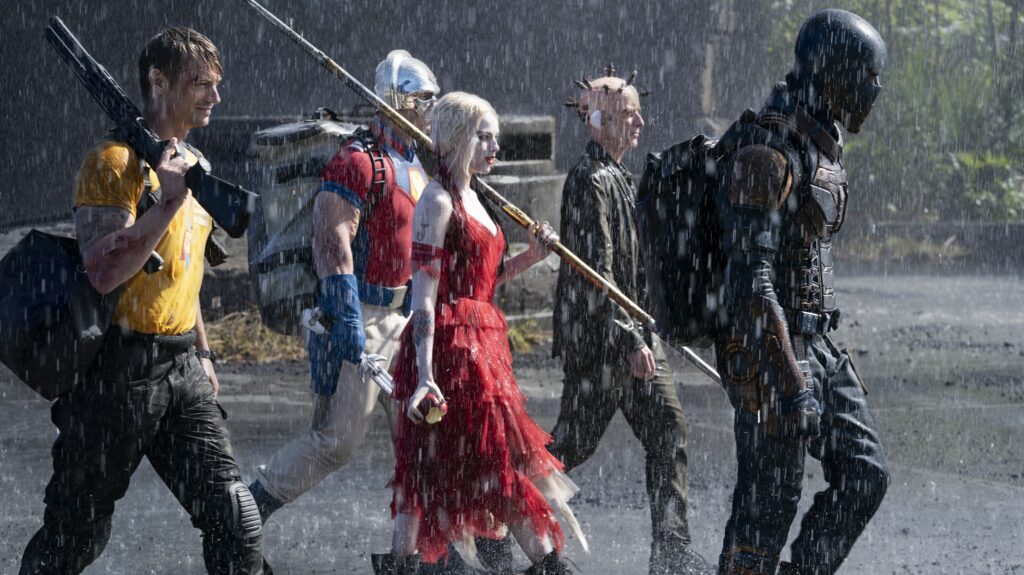After David Ayer’s viscerally upsetting, tragically mismanaged Suicide Squad exposed itself to moviegoers back in 2016, it seemed highly unlikely that DC’s premier team of anarchic, crime-fighting scamps would get another crack at the big screen. Flash forward to two years later: Marvel fires hotshot director/golden goose James Gunn from his wildly successful Guardians of the Galaxy franchise over some pretty tasteless tweets from 2009-2011 which had suddenly resurfaced and were salting all the wrong melons. But Gunn didn’t just sit around, luxuriating in the petrol savings he was surely now enjoying. Oh no.

Somehow – in a stunningly uncharacteristic moment of lucidity – DC executives managed to stop poisoning each other’s wine and hunting the homeless for sport long enough to agree that they should pounce on Gunn while he was still available. In a near-unprecedented move, DC offered the embattled director his choice of any of their IPs, and the promise of full creative control. Perhaps out of feelings of loss for the seemingly-defunct Guardians 3, or perhaps from a newfound sense of empathy for the unwanted, C-list rejects in its pages, Gunn decided to give The Suicide Squad – and himself – the second chance so few of us ever get.
With the use of a stunningly audacious bait-and-switch, The Suicide Squad introduces its over-subscribed roster of characters with maximum efficiency and takes a gleefully chaotic approach to killing them off just as fast. Returning cast members Joel Kinnaman (Rick Flagg), Viola Davis (Amanda Waller), and Margot Robbie (Harley Quinn) make the most of their own chances for a do-over, each clearly enjoying their chance to tackle a vastly improved take on the source material.
The rest of the cast is an impressively broad roster of old Gunn regulars like Michael Rooker (Savant), David Dastmalchian (Polka- Dot Man) and Sean Gunn (Weasel), alongside fan favourites Peter Capaldi (The Thinker), Nathan Fillion (The Detachable Kid), Sylvester Stallone (King Shark) and the bewilderingly lantern-jawed John Cena (Peacemaker); some dementedly inspired choices that fit effortlessly within Gunn’s comfy niche on the insane/genius spectrum.

As fine as the cast is, many of these characters fall victim to the film’s punk rock approach to our expendable heroes. It’s good, in a way; not since the early seasons of Game of Thrones has a writer so openly mocked the concept of plot armour, killing off significant characters with such devotion to ‘the bit’. As minor as it seems, it can still be hard to shake the disenchantment that inevitably comes when some of the more imaginative casting choices – in a movie overstuffed with them – get shanked before they can even show off their sweet signature moves.
Luckily, the movie manages to capitalise on these deaths in new and surprising ways, occasionally cutting back and forth in time and creating whiplash-inducing narrative turns and shock reveals without sacrificing clarity or focus on character. The Suicide Squad is keenly aware of when to play it for laughs as much as when to go for the emotional gut-punch – in particular during the breathless third act; a relentlessly escalating string of climaxes, classic hero moments and double-crosses.
Each character still gets at least a memorable line or two, or a unique character moment before being casually eviscerated. And although he and his character’s impressive skillset are underused, Peter Capaldi gets a small, fun ‘Malcolm Tucker in space’ moment, and David Dastmalchian delivers a surprisingly tragi-comic performance as the overpowered ball of mother issues and lanky nerves with matter-disintegrating, inter-dimensional polka dots at his disposal. Even Ratcatcher II (a charismatic Daniela Melchior) is afforded a layered and endearing arc as she progresses from complete unknown(‘s even more unknown daughter) to the movie’s eventual emotional core.

It almost goes without saying that Margot Robbie absolutely sails through the movie with her perfectly judged Harley Quinn. Although the character must surely be one of the most challenging to translate to the screen, Robbie continues to nail the balance between demented energy and endearing, curious naivety, making her Harley an effortless front-runner for the ‘main protagonist’ position in a movie that has about four of them. One of the more interesting relationships though, is the love/hate triangle between Idris Elba’s reluctant leader Bloodsport, the hilariously deadpan, authoritarian zealot Peacemaker (“I cherish peace with all my heart. I don’t care how many men, women and children I need to kill to get it.”) and the rebooted, re-purposed Rick Flagg.
Elba and Cena have a nice, simmering tension as rival mercenaries who, at one point compete to ‘out- kill’ each other in a sequence full of truly ingenious sight gags and hilariously childish moments of violent one-upmanship. Meanwhile, Flagg’s embattled, morally upright worldview is pitted against the not-so-subtle political allegory of Peacemaker’s ‘America first’ tendencies in a sphincter-shattering punch-up inside a collapsing building.
Largely, Gunn is content to focus on character, but is not afraid to use these characters to inject a few short, sharp statements critiquing invasive US foreign policy, toxic relationships and high-level political hubris that feel a million miles from the politically neutered MCU. Elsewhere, a fight viewed primarily in the reflection of Peacemaker’s helmet and a beautifully macabre slow-mo shot of King Shark ripping a man in half during a thunderstorm keep things visually interesting.

Gunn is also clearly enjoying the new-found freedom of his 15 rating, indulging in generous amounts of splatter and the odd moment of body horror courtesy of The Thinker’s grotesque human/starfish experiments. Speaking of indulgences, the movie also features not one, but two prison breakout scenes, which thankfully are visually and thematically distinct enough to avoid the feeling of deja vu. It helps that the movie is shot using practical effects wherever possible, grounding the lunacy in a naturalistic, unforced sense of reality and giving it the texture of a spy movie that just so happens to have been invaded by multicoloured supervillains.
In many ways, The Suicide Squad was an open goal: the original was so roundly rejected that David Ayer himself has since disowned the film, saying recently: “The studio cut is not my movie” and singing Gunn’s praises, calling his reboot the “miracle of miracles.” While the term ‘miracle’ might be a bit of a stretch, James Gunn’s latest is an anarchic, surprisingly moving celebration of the rejects and fuck-ups in the DC rogues’ gallery that builds on all his greatest assets as a filmmaker. The Suicide Squad is as emblematic of the DCEU as Guardians of the Galaxy is to the MCU; which is to say, it isn’t. This is a James Gunn film first and foremost, and DC’s smartest move was to recognise that as a strength.
The Suicide Squad is out now in cinemas.
